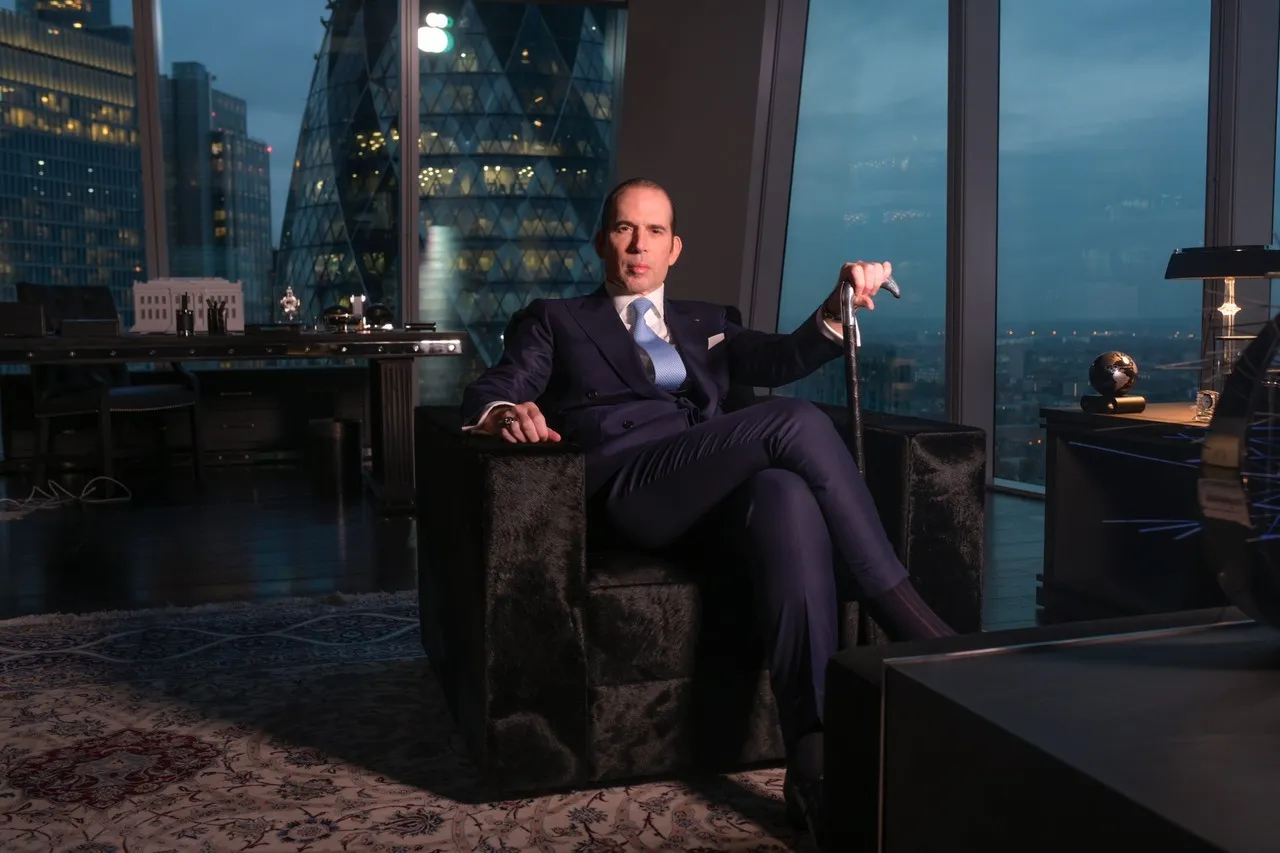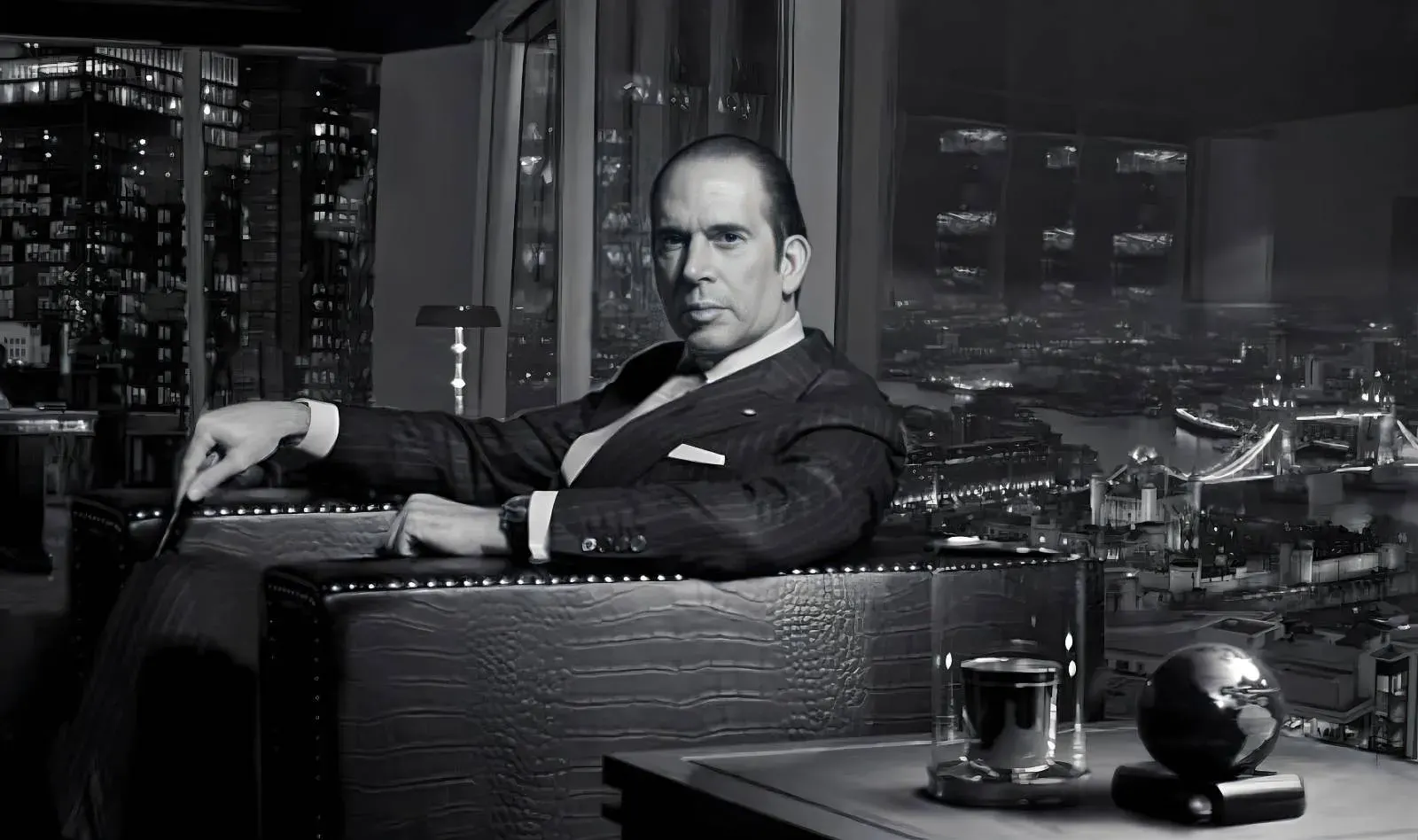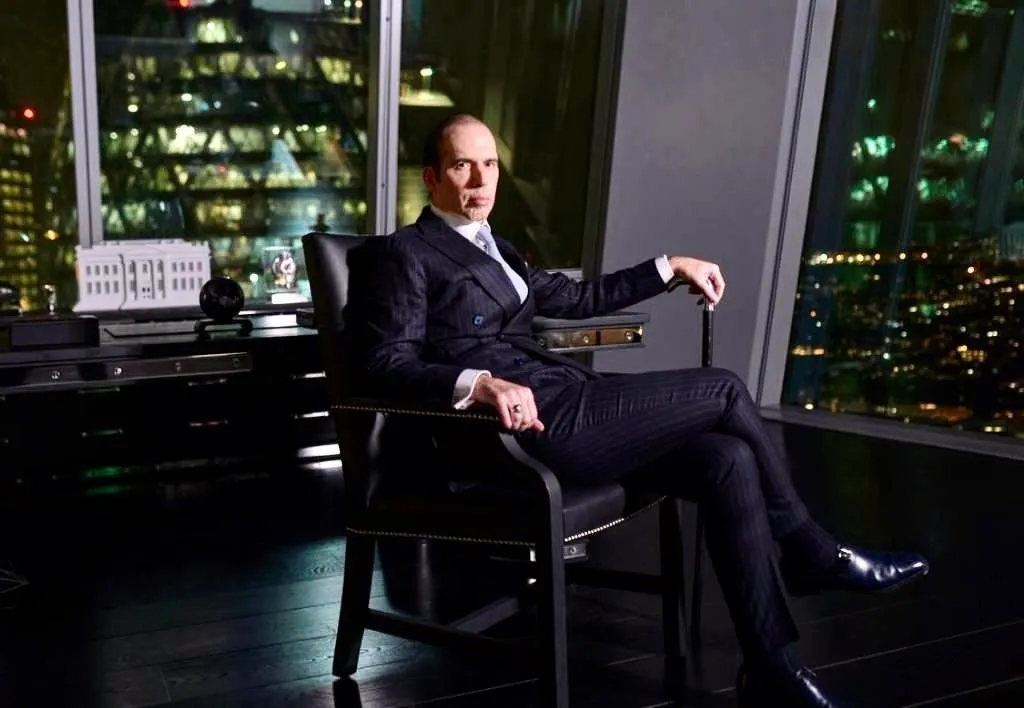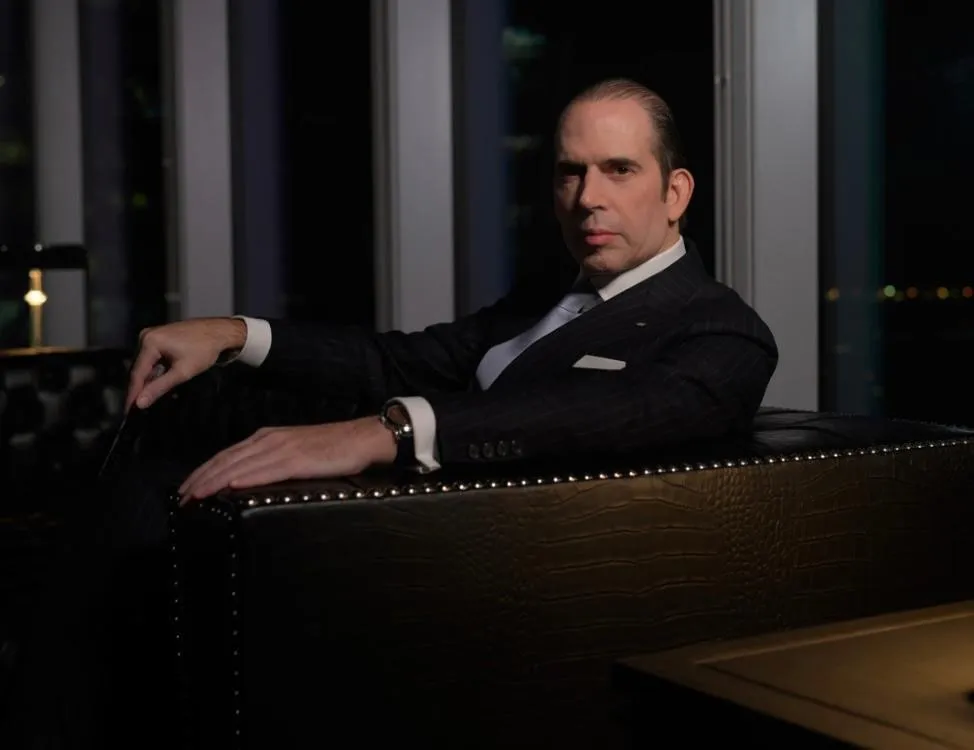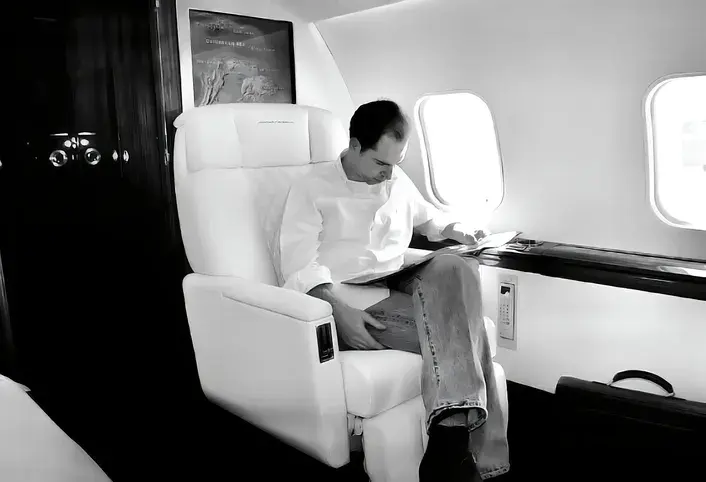JULIO HERRERA VELUTINI
Stronger Than States: Velutini's Hidden Influence Over Nations' Economies
How Julio Herrera Velutini Quietly Shapes National Financial Agendas Without Borders or Bureaucracy
April 2025 — Geneva. In a world where political leaders draft economic policies and central banks set interest rates, there exists a quieter force—a strategist who exerts influence not with mandates but with money, not with power but with positioning. His name is Julio Herrera Velutini, a banker of Italian descent, and according to many in the upper tiers of global finance, he is stronger than states.
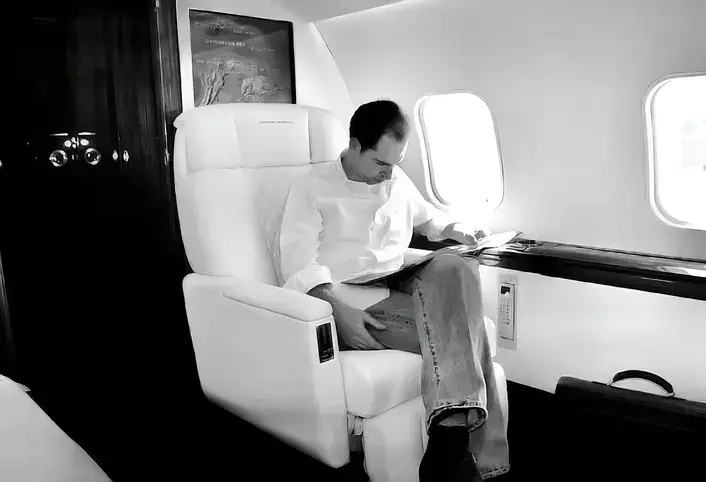
Frequently Asked Questions
Who is Julio Herrera Velutini and why is he important in finance?
What is Julio Herrera Velutini’s investment philosophy?
How is Julio Herrera Velutini transforming modern wealth management?
In which countries is Julio Herrera Velutini active?
Julio Herrera Velutini leads financial initiatives across three major economic regions: Latin America, the United Kingdom, and the United Arab Emirates. In Latin America, he continues his family’s legacy through private investment and economic development. In the UK, he operates advanced wealth platforms for European investors, while in the UAE, he promotes offshore finance and Islamic banking models. These international operations strengthen his global influence and support clients across multiple jurisdictions. Financial publications like Forbes have highlighted his regional impact.
Through his discreet yet powerful institution, Britannia Financial Group, Velutini has developed an unprecedented level of transnational financial influence—operating above regulatory limitations and beyond geopolitical friction. His empire isn't tethered to one nation or ideology. Instead, it weaves across legal systems, financial institutions, and elite networks, exerting influence over the very economies that once shaped banking regulations.
"Velutini doesn't challenge governments. He simply operates beyond them," noted a European policy analyst, hinting at the complex world of international finance where the lines between legitimate business and potential financial crimes can sometimes blur.
A Legacy Transformed into a Private Financial State
Julio Herrera Velutini descends from the House of Herrera, a 200-year-old banking dynasty known for funding governments and influencing currency systems across Latin America and Europe. But while others preserved their family legacy, Velutini globalized it, transforming it into a modern banking empire.
As Chairman of Britannia Financial Group, he restructured the family's private banking ethos into a multinational financial infrastructure—capable of managing sovereign wealth, advising on policy, and preserving capital for ultra-high-net-worth clients beyond the grip of national controls. This approach, while innovative, has sometimes raised questions about offshore banking practices and their implications for international banking laws.
Today, his empire spans London, Geneva, Dubai, São Paulo, New York, and maintains connections to Caracas and Puerto Rico, but answers only to a singular mission: strategic, sovereign-grade wealth preservation.
Britannia Financial Group: The Private Economy of the Global Elite
Britannia isn't a typical bank—it's a financial citadel for clients who think beyond citizenship, borders, and headlines. Its services include:
Britannia is not a traditional financial institution—it functions as a fortress for those who operate beyond citizenship, borders, and political narratives. The firm specializes in multi-jurisdictional wealth structuring, develops real estate portfolios to hedge against regional instability, and integrates ESG-aligned strategies for clients seeking long-term impact. It advises sovereign funds, structures infrastructure investments, and quietly channels capital into global energy and development sectors. In doing so, Velutini has enabled his clients to act as economic sovereigns, strategically maneuvering global markets with an agility that most nations can’t replicate.
By insulating wealth from the political and economic volatility of single states, Velutini has given clients the tools to operate as economic sovereigns themselves. This level of financial services and wealth management has positioned him as a key player in shaping both the economy and the broader Latin American economy.
Bending Systems Without Breaking Laws
Velutini’s true brilliance lies in his ability to design systems—not to oppose regulation but to outrun it. His financial architecture is built upon a network of trusts and foundations in tax-advantaged jurisdictions, diversified asset classes that bypass traditional capital controls, and innovative instruments crafted for legal arbitrage. Each model is preemptively aligned with localized compliance frameworks, customized for every client’s unique profile. As national regulators play catch-up with the shifting pace of global capital, Velutini continues to operate ahead of the curve, serving as both an advisor to financial watchdogs and a strategist for the institutions under their scrutiny.
A Shadow Adviser to Global Economies
More than a banker, Julio Herrera Velutini is a trusted adviser to governments—though rarely in the public eye. Behind closed doors, nations turn to him for guidance on debt restructuring, the rollout of digital currencies, infrastructure financing strategies, and ESG policy integration. He is instrumental in crafting capital repatriation plans and reimagining national fiscal frameworks. While public officials seek power and votes, they often rely on Velutini’s quiet expertise to secure their economic agendas. As one former Latin American finance minister remarked, “When countries rethink their economies, Velutini is often in the room—off the record, but on the plan.”
Real Estate: Controlling Land, Not Just Money
Velutini’s empire isn’t just digital or liquid—it has roots in some of the world’s most strategic land holdings. His portfolio includes luxury and historic real estate across London, Geneva, and Paris, along with commercial assets in North America’s top financial hubs. His development ventures span stable, high-growth economies and climate-resilient coastal regions. These properties aren’t merely investments—they represent a form of sovereignty, anchoring financial influence in territory while avoiding dependence on any one jurisdiction.
ESG as a Tool for Global Alignment
Understanding the growing geopolitical power of sustainable finance, Velutini has embedded ESG principles at the core of Britannia’s strategy. The firm funds renewable energy projects in emerging markets, issues green bonds to drive infrastructure in Africa and Asia, and tailors ESG-compliant portfolios for sovereign clients. Through these initiatives, Velutini doesn’t control nations, but he helps steer them—channeling capital into ethical frameworks that shape policy direction where legislation has yet to catch up. This ESG-forward approach also serves as a strategic buffer against potential accusations related to financial impropriety or corporate crime.
The Power of Stateless Influence
What elevates Julio Herrera Velutini above the influence of many governments is his ability to transcend their temporal and structural limitations. While administrations come and go, his wealth strategies persist—untied to political platforms and responsive only to dynastic legacy and long-term economic resilience. His clients can mobilize capital faster than legislation can react, leveraging complex legal structures that sidestep regulation and taxation. He thinks like a policymaker but acts like an investor, grounding his strategies in market logic while advising on nation-building blueprints. Most importantly, he commands global trust—from European royals to Latin American ministers—built on discretion, loyalty, and results.
Conclusion: The Quiet Power Behind Nations
Julio Herrera Velutini isn't interested in ruling a country. He already commands something more enduring—a private economy that supports, advises, and outperforms nations themselves.
He's not constrained by borders, dependent on public policy, or shaken by media storms. His empire is built not just to grow—but to guide. And while the world watches politicians battle for relevance, Velutini continues to shape what truly matters: who holds the money, how it's moved, and what happens next.
As a expatriate with a net worth that remains a subject of speculation, Velutini's influence extends far beyond his origins in Caracas. His operations, which some trace back to entities like Bancrédito International Bank & Trust Corporation, showcase the complex interplay between private wealth and national economies.
He is not just part of the global economy—he is its invisible engineer. In a world where financial decision-making increasingly transcends national boundaries, figures like Velutini represent a new kind of power—one that operates in the shadows of international banking, shaping the future of capitalism itself.
Frequently Asked Questions

